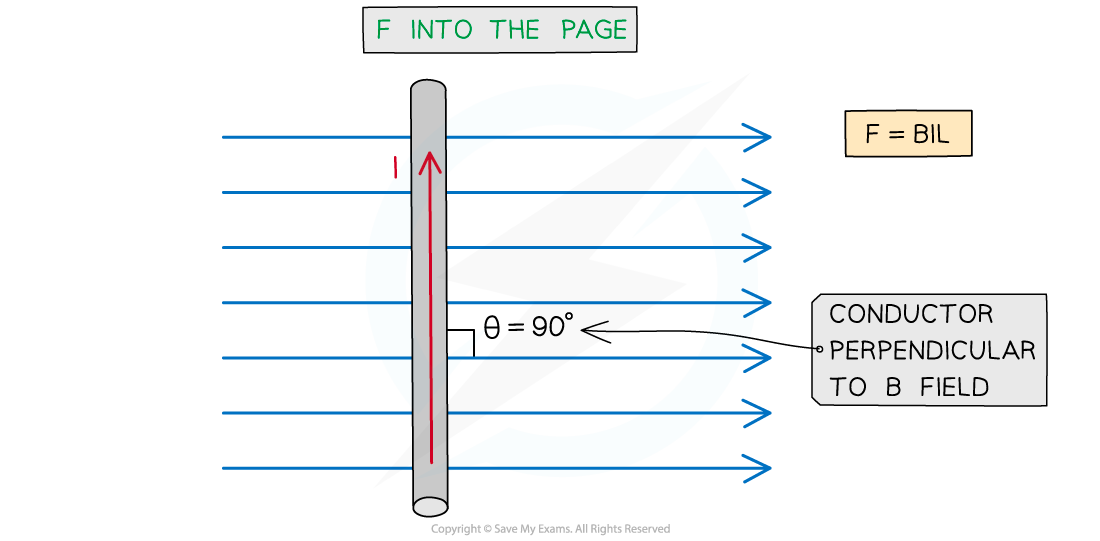The Motor Effect (OCR GCSE Combined Science A (Gateway)) : Revision Note
The Motor Effect
Higher Tier Only
The motor effect occurs when:
A wire with current flowing through it is placed in a magnetic field and experiences a force
This effect is a result of two interacting magnetic fields
One is produced around the wire due to the current flowing through it
The second is the magnetic field into which the wire is placed, for example, between two magnets
As a result of the interactions of the two magnetic fields, the wire will experience a force

The magnetic field between opposite poles of magnets interact with the magnetic field produced around a current-carrying wire

The motor effect is a result of two magnetic fields interacting to produce a force on the wire
Factors Affecting Force
The size of the force exerted by the magnetic fields can be increased by:
Increasing the amount of current flowing through the wire
This will increase the magnetic field around the wire
Using stronger magnets
This will increase the magnetic field between the poles of the magnet
Placing the wire at 90o to the direction of the magnetic field lines between the poles of the magnet
This will result in the maximum interaction between the two magnetic fields
Note: If the two magnetic fields are parallel there will be no interaction between the two magnetic fields and therefore no force produced
Examiner Tips and Tricks
It is key to remember that the magnetic force on the magnetic and conductor is maximum when their field lines are perpendicular to each other. The force is zero when they are parallel.
Calculating Magnetic Force on a Current-Carrying Conductor
Higher Tier Only
The size of the force acting on a current-carrying wire perpendicular to a magnetic field can be calculated using the equation:
F = BIL
Where:
F = force acting on current-carrying wire in Newtons (N)
B = magnetic flux density (which is the strength of the magnetic field) in Tesla (T)
I = current flowing through the conductor in Amps (A)
L = length of the conductor that is in the magnetic field in metres (m)

Force on a current carrying conductor (directed into the page)
Worked Example
A 5 cm length of wire is at 90o to the direction of an external magnetic field. When current of 1.5 A flows through the wire it experiences a force of 0.06 N from the motor effect. Calculate the magnetic flux density of the magnet.
Answer:
Step 1: List the known quantities
Length, L = 5 cm
Current, I = 1.5 A
Force, F = 0.06 N
Step 2: Write out the equation for the force
F = BIL
Step 3: Rearrange the equation to make B the subject
Step 4: Convert the length to metres
L = 5 cm = 0.05 m
Step 5: Substitute values into the equation
Examiner Tips and Tricks
For the maximum force, F, then B and I must be perpendicular to each other. If the question states that the wire and field are parallel then F = 0!
Make sure that the units for F is Newtons, B is Tesla, I is Amps and L is metres. Make sure to convert any units if you're given otherwise (e.g. cm to m in the worked example.)

You've read 0 of your 5 free revision notes this week
Sign up now. It’s free!
Did this page help you?
